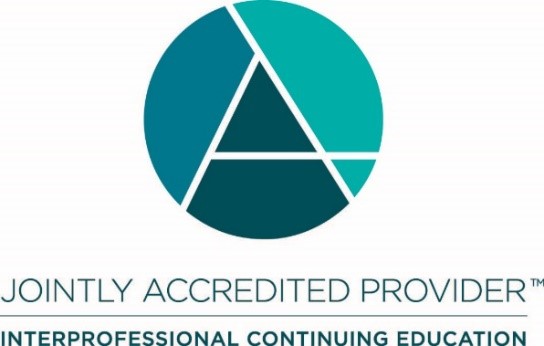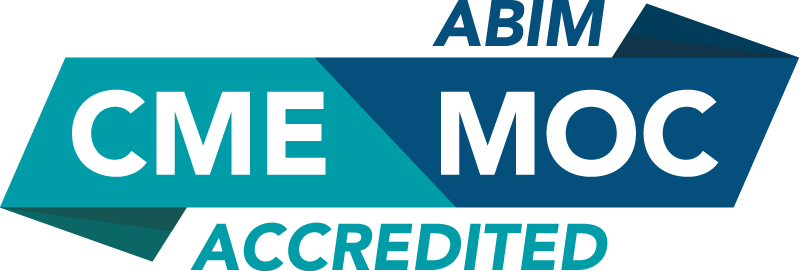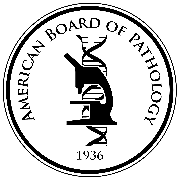NCCN 2022 Breast Cancer Congress with Updates from the 2021 San Antonio Breast Cancer Symposium
This program features world-renowned experts who will review the current standard of care for patients with breast cancer, the latest NCCN Guidelines recommendations, and recent clinical research updates.
Target Audience
This program is designed to meet the educational needs of physicians, nurse practitioners, nurses, physician assistants, pharmacists, and other health care professionals who manage patients with breast cancer.
Learning Objectives
Following this program, participants should be able to:
Overall Congress Objectives
• Summarize the current standards of oncology care, key updates in the NCCN Clinical Practice Guidelines in Oncology (NCCN Guidelines®), and clinical research updates from the 2021 San Antonio Breast Cancer Symposium, and integrate appropriate strategies into clinical practice to optimize the management of patients with breast cancer and improve patient outcomes.
• Evaluate new, emerging and novel therapeutic agents, advances in care, and clinical trials data and apply relevant findings into the management of patients with breast cancer.
Genetic/Familial Risk Assessment for Breast Cancer: Testing Considerations and Controversies
• Recognize the utility of multigene testing for identification of high- and moderate-penetrance breast cancer susceptibility genes.
• Review current genetic testing criteria for patients with breast cancer.
• Identify when germline testing for the purpose of informing treatment decision-making in breast cancer is clinically indicated.
Impact of the Pandemic on Breast Cancer Screening
• Recognize the challenges of breast cancer screening and diagnosis during the COVID-19 pandemic.
• Describe how these challenges are expected to affect breast cancer-related morbidity and mortality and health disparities.
• Identify measures that may be used to address knowledge gaps, to effectively resume breast cancer screening, and to mitigate breast cancer-related morbidity and mortality and health disparities.
Locoregional Management of Non-Metastatic Breast Cancer with SABCS Updates
Surgical Management of Non-Metastatic Breast Cancer with SABCS Updates
• Individualize surgical management recommendations based on patient and tumor characteristics.
• Develop an evidence-based approach for the surgical management of the axilla in patients with early stage breast cancer.
• Discuss new and emerging data in the treatment of patients with early stage breast cancer and integrate key findings into clinical practice.
Radiation Therapy for Non-Metastatic Breast Cancer with SABCS Updates
• Individualize radiation therapy recommendations based on patient and tumor characteristics.
• Review optimal timing of radiation therapy for those receiving systemic adjuvant therapy.
• Discuss data about new and emerging radiation treatment modalities in the treatment of patients with early stage breast cancer.
Neoadjuvant and Adjuvant Treatment for Breast Cancer with SABCS Updates
Neoadjuvant and Adjuvant Treatment for HER2-Negative Breast Cancer with SABCS Updates
• Compare and contrast data on the clinical safety and efficacy of neoadjuvant regimens in early stage HER2-negative breast cancer.
• Recognize key patient and clinical factors that influence selection of systemic adjuvant therapy for HER2-negative breast cancer.
• Discuss clinical data of new and emerging supportive care interventions to improve quality of life of HER2-negative breast cancer patients undergoing neoadjuvant/adjuvant chemotherapy.
Neoadjuvant and Adjuvant Treatment for HER2-Positive Breast Cancer with SABCS Updates
• Compare and contrast data on the clinical safety and efficacy of neoadjuvant regimens in early stage HER2-positive breast cancer.
• Recognize key patient and clinical factors that influence selection of systemic neoadjuvant/adjuvant therapy for HER2-positive breast cancer.
• Discuss clinical data of new and emerging supportive care interventions to improve quality of life of HER2-positive breast cancer patients undergoing neoadjuvant/adjuvant chemotherapy.
Management of Metastatic Breast Cancer with SABCS Updates
Management of HER2-Negative Metastatic Breast Cancer with SABCS Updates
• Select evidence-based first- and subsequent-line treatment options for patients with metastatic breast cancer based on HR-positive, HER2-negative metastatic breast cancer.
• List the current therapeutic approaches for management of metastatic triple negative breast cancer.
• Outline new and emerging therapeutic options for patients with HER2-negative metastatic breast cancer.
Management of HER2-Positive Metastatic Breast Cancer with SABCS Updates
• Integrate recent advances and available clinical data to optimally sequence HER2-targeted agents in the treatment of HER2-positive metastatic breast cancer.
• Optimally manage common toxicities related to the HER2-targeted therapies.
• Outline new and emerging therapeutic options for patients with HER2-positive metastatic breast cancer.
Managing Pain and Neuropathy in Breast Cancer Survivors
• Discuss non-pharmacologic approaches to manage pain and chemotherapy-induced peripheral neuropathy (CIPN) in breast cancer survivors.
• Compare and contrast the risks and benefits of the use of opioids in breast cancer survivors.
• Define strategies to maintain patient safety and minimize the risks of opioid misuse and abuse during chronic opioid use.
NCCN Medical Education Disclosure Policy
It is the policy of NCCN that all planners, faculty, moderators, authors, reviewers and anyone involved in the planning and delivery of NCCN continuing education activities are expected to disclose ALL financial relationships they have had in the past 24 months with ineligible companies. The ACCME Standards for Integrity and Independence require that individuals who refuse to provide this information will be disqualified from involvement in the planning and implementation of accredited continuing education presented by NCCN. NCCN identifies, mitigates and discloses to learners all relevant financial relationships.
In addition, all content has been reviewed to ensure education promotes safe, effective patient care and does not promote the products or services of an ineligible company. Content, including any presentation of therapeutic options, is fair, balanced, evidence-based, scientifically accurate, and free of commercial bias and marketing.
Definitions
Ineligible Company: An ineligible company is any entity whose primary business is producing, marketing, selling, re-selling, or distributing healthcare products used by or on patients.
Relevant Financial Relationships: Financial relationships of any dollar amount occurring within the past 24 months are defined as relevant if the educational content an individual can control is related to the business lines or products of an ineligible company. There is no minimum financial threshold. We ask for disclosure of ALL financial relationships with ineligible companies, regardless of the amount and regardless of the potential relevance of each relationship to the education.
Faculty Disclaimers
All faculty for this continuing education activity are competent in the subject matter and qualified by experience, training, and/or preparation for the tasks and methods of delivery.
Faculty presentations may include discussion of off-label use. Faculty will disclose that the use in question is not currently approved by the FDA per the product labeling or marketing.
Faculty Disclosures
The faculty listed below have no relevant financial relationships with ineligible companies to disclose.
Annette P. Hood, PharmD, BCACP
Kathryn D. Mason, FNP
Meena S. Moran, MD
Sharon Walenga, BS, RT(R)(M)
The faculty listed below have the following relevant financial relationships with ineligible companies to disclose. All of the relevant financial relationships listed for these individuals have been mitigated.
Sonya Bhole, MD
Google LLC: Grant/Research Support
Sarah M. Friedewald, MD
Google LLC: Grant/Research Support
Hologic, Inc.: Consulting Fee
William J. Gradishar, MD
AstraZeneca Pharmaceuticals LP: Honoraria; Scientific Advisor
Biotheranostics: Honoraria; Scientific Advisor
Daiichi-Sankyo Co.: Honoraria; Scientific Advisor
Eli Lilly and Company: Scientific Advisor
ImmunoGen, Inc.: Honoraria; Scientific Advisor
MacroGenics: Scientific Advisor
Puma Biotechnology: Scientific Advisor
Seattle Genetics, Inc.: Scientific Advisor
Allison W. Kurian, MD, MSc
Myriad Genetic Laboratories, Inc.: Grant/Research Support
A. Marilyn Leitch, MD
AstraZeneca Pharmaceuticals LP: Consulting Fee
Puma Biotechnology: Consulting Fee
Maryam B. Lustberg, MD, MPH
AstraZeneca Pharmaceuticals LP: Consulting Fee
Biotheranostics: Consulting Fee
Egetis Therapeutics: Consulting Fee
Novartis Pharmaceuticals Corporation: Consulting Fee
Pfizer Inc.: Consulting Fee
sanofi-aventis U.S.: Consulting Fee
Hope S. Rugo, MD
AstraZeneca Pharmaceuticals LP: Grant/Research Support
Ayala Pharmaceuticals: Grant/Research Support
Boehringer Ingelheim GmbH: Grant/Research Support
Daiichi-Sankyo Co.: Grant/Research Support
Eli Lilly and Company: Grant/Research Support
Gilead Sciences, Inc.: Grant/Research Support
MacroGenics: Grant/Research Support
Merck & Co., Inc.: Grant/Research Support
Mylan Inc.: Honoraria
Napo Pharmaceuticals Inc.: Honoraria
Novartis Pharmaceuticals Corporation: Grant/Research Support
Pfizer Inc.: Grant/Research Support
Polyphor Ltd.: Grant/Research Support
Puma Biotechnology: Honoraria
Roche Laboratories, Inc.: Grant/Research Support
Samsung: Honoraria
Seattle Genetics, Inc.: Grant/Research Support
Sermonix Pharmaceuticals: Grant/Research Support
Ami N. Shah, MD
AstraZeneca Pharmaceuticals LP: Honoraria
Karen Lisa Smith, MD, MPH
Pfizer Inc.: Grant/Research Support
NCCN Staff Disclosures
None of the planners for this educational activity have relevant financial relationships to disclose with ineligible companies whose primary business is producing, marketing, selling, re-selling, or distributing healthcare products used by or on patients.

In support of improving patient care, National Comprehensive Cancer Network (NCCN) is jointly accredited by the Accreditation Council for Continuing Medical Education (ACCME), the Accreditation Council for Pharmacy Education (ACPE), and the American Nurses Credentialing Center (ANCC), to provide continuing education for the healthcare team.
Physicians
NCCN designates this live activity for a maximum of 5.75 AMA PRA Category 1 Credits™. Physicians should claim only the credit commensurate with the extent of their participation in the activity.
Nurses
NCCN designates this educational activity for a maximum of 5.75 contact hours. This program offers 3 pharmacotherapeutic contact hours for nurses. Eligible sessions are listed below:
- Neoadjuvant and Adjuvant Treatment for Breast Cancer with SABCS Updates
- Management of Metastatic Breast Cancer with SABCS Updates
- Managing Pain and Neuropathy in Breast Cancer Survivors
Pharmacists
NCCN designates this knowledge-based continuing education activity for 5.75 contact hours (0.575 CEUs) of continuing education credit. UAN: JA4008196-0000-22-013-L01-P
Physician Assistants
NCCN has been authorized by the American Academy of PAs (AAPA) to award AAPA Category 1 CME credit for activities planned in accordance with AAPA CME Criteria. This activity is designated for 5.75 AAPA Category 1 CME credits. PAs should only claim credit commensurate with the extent of their participation.
American Board of Internal Medicine Maintenance of Certification (MOC)

Successful completion of this CME activity, which includes participation in the evaluation component, enables the participant to earn up to 5.75 medical knowledge MOC points in the American Board of Internal Medicine’s (ABIM) Maintenance of Certification (MOC) program. Participants will earn MOC points equivalent to the amount of CME credits claimed for the activity. It is the CME activity provider’s responsibility to submit participant completion information to ACCME for the purpose of granting ABIM MOC credit.
Aggregated participant data will be shared with the commercial supporters of this activity.
American Board of Pathology Continuing Certification (CC)

This activity has been registered to offer credit in the American Board of Pathology’s (ABPath) Continuing Certification program. Successful completion of this CME activity enables the participant to earn up to 5.75 Lifelong Learning (Part II) credits.
Aggregated participant data will be shared with the commercial supporters of this activity.
American Board of Surgery Continuous Certification (CC)

Successful completion of this CME activity, which includes participation in the evaluation component, enables the learner to earn credit toward the CME and/or Self-Assessment requirements of the American Board of Surgery’s Continuous Certification program. It is the CME activity provider's responsibility to submit learner completion information to ACCME for the purpose of granting ABS credit.
American Board of Medical Specialties (MOC)
Through the American Board of Medical Specialties (“ABMS”) MOC Initiative to create a wide array of Maintenance of Certification (“MOC”) Activities through the ABMS MOC Directory, the NCCN 2022 Breast Cancer Congress has met the MOC requirements as a MOC Part II CME Activity (apply toward general CME requirement) by the following ABMS Member Boards:
MOC Part II CME Activity
Medical Genetics and Genomics
Pathology
Radiology
Available Credit
- 5.75 AAPA Category 1 CME credit
- 5.75 AMA PRA Category 1 Credit™
- 5.75 ANCC contact hours
- 3.00 ANCC Pharmacology Contact Hours
- 5.75 Participation
Click the Take Course button to start the credit claiming process.
CE/MOC credit should be claimed for the congress as a whole, not session by session. You may claim credit for the congress only one time. When calculating your total credits, you should take into account all of the sessions you viewed either live or via recording. (Please note that you have access to all of the session recordings for 60 days after the live congress.)
Pharmacists: you must complete all requirements for credit by March 28, 2022.
Required Hardware/software
To complete this activity, users will need:
- A device with an Internet connection and sound playback capability
- One of the two latest versions of Google Chrome, Mozilla Firefox, or Safari
- Internet Explorer is no longer supported
- Adobe Reader or other PDF reader software for certificate viewing/printing

 Facebook
Facebook X
X LinkedIn
LinkedIn Forward
Forward